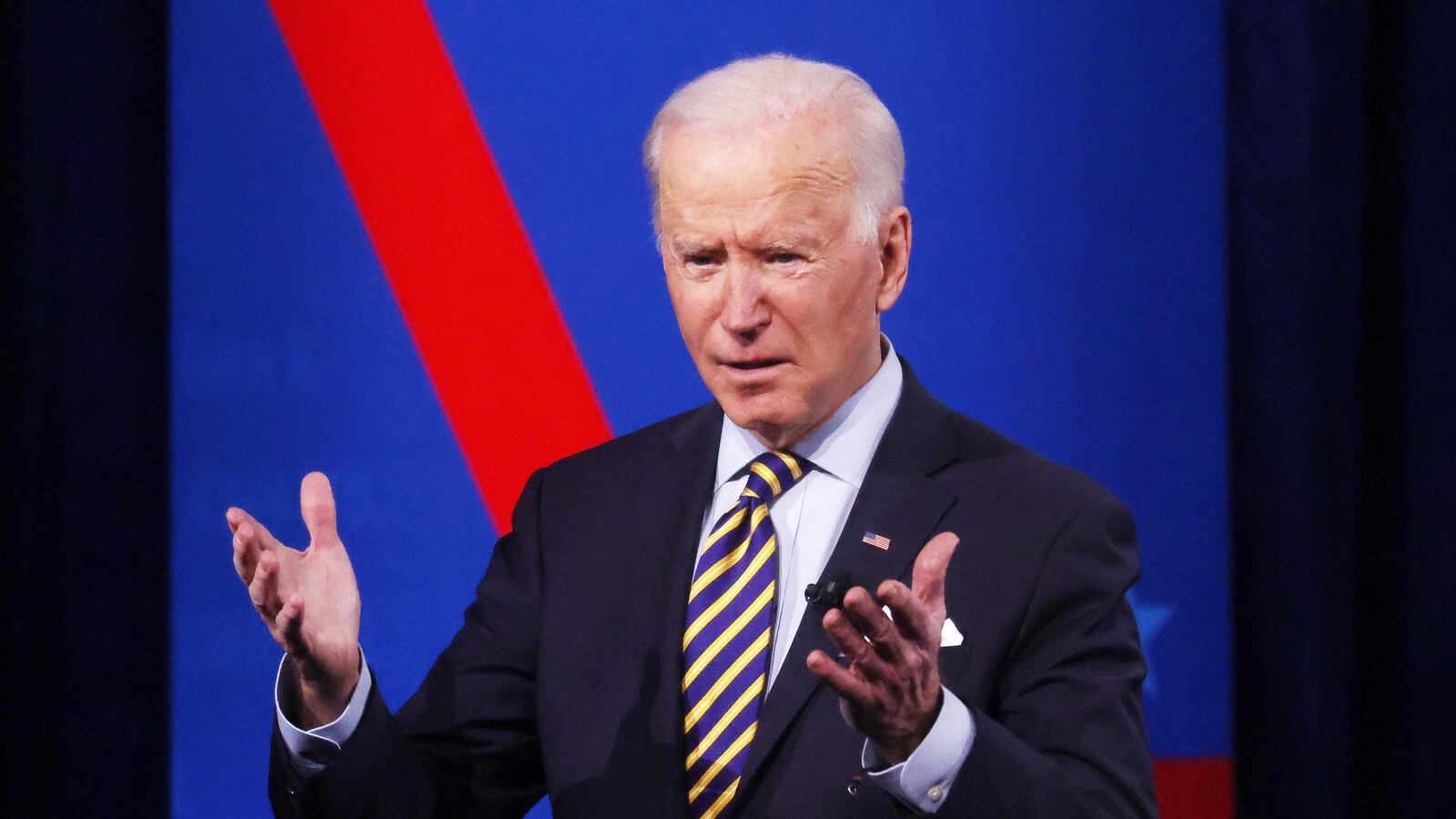In the weeks since his inauguration, President Joe Biden has publicly taken on the role of reassurer-in-chief, telling Americans that the long-promised solution to the coronavirus pandemic and the rebuilding of the nation’s economy are on their way.
“Don’t be scared, honey—don’t be scared,” Biden told an attendee during a town hall event at the Pabst Theater in Milwaukee on Tuesday evening. “You’re gonna be fine, and we’re gonna make sure that Mommy’s fine too.”
Biden’s words of comfort were intended to assuage the fears of a 7-year-old girl worried about the pandemic’s effect on children, but they channeled the tone of many of his public remarks since taking office last month: encouraging, but never overpromising, even if the audience might prefer it otherwise.
Vaccinations, for example, will be available to all Americans “by the end of July of this year,” Biden said, but the nation may not be back to normal until Christmas. The government’s goal is to get the majority of schools open five days a week by the end of March, but that only includes kindergarten through the eighth grade. Biden’s economic plan could get as many as seven million people back into the workforce, but Congress will need to act soon.
“All the experts... they tell me be careful not to predict things that you don’t know for certain it’s going to happen,” he said.
Still, he hoped the country would be “in a very different circumstance” within a year, with “significantly fewer people having to be socially distanced, having to wear masks—but we don’t know. We don’t know. So I don’t want to overpromise anything here.”
The bulk of the event—hosted by CNN’s Anderson Cooper, who seemed comfortable allowing Biden to take the scenic route when answering questions posed by a socially distanced audience of locals—was spent discussing the coronavirus pandemic and the economic disaster it has wrought, with particular focus on the reopening of public schools as a key part of the nation’s return to what might pass for normalcy.
Biden at one point backtracked from the stance articulated last week by White House Press Secretary Jen Psaki, calling her downgrading of his pledge to reopen schools within 100 days “a mistake in the communication,” but not adding much in the way of specificity to the plan that parents, students and teachers alike are relying on.
“We’ll be close to that at the end of the first 100 days,” Biden said, adding that he was pushing for the school term to be extended through the summer months to compensate for the lack of in-person education.
While most White House briefings—and a few recent remarks by Vice President Kamala Harris—have pointedly noted that the Biden White House was left holding the bag on the federal government’s COVID-19 response, the president largely stayed away from belaboring the last administration’s role in neglecting the crisis, at one point even declining to say President Donald Trump’s name. The 45th president was instead “the former guy.”
“I’m tired of talking about Donald Trump. I don’t want to talk about him anymore,” Biden said. “For four years, all that’s been in the news is Trump. For the next for years, I want to make sure that all the news is about the American people.”






